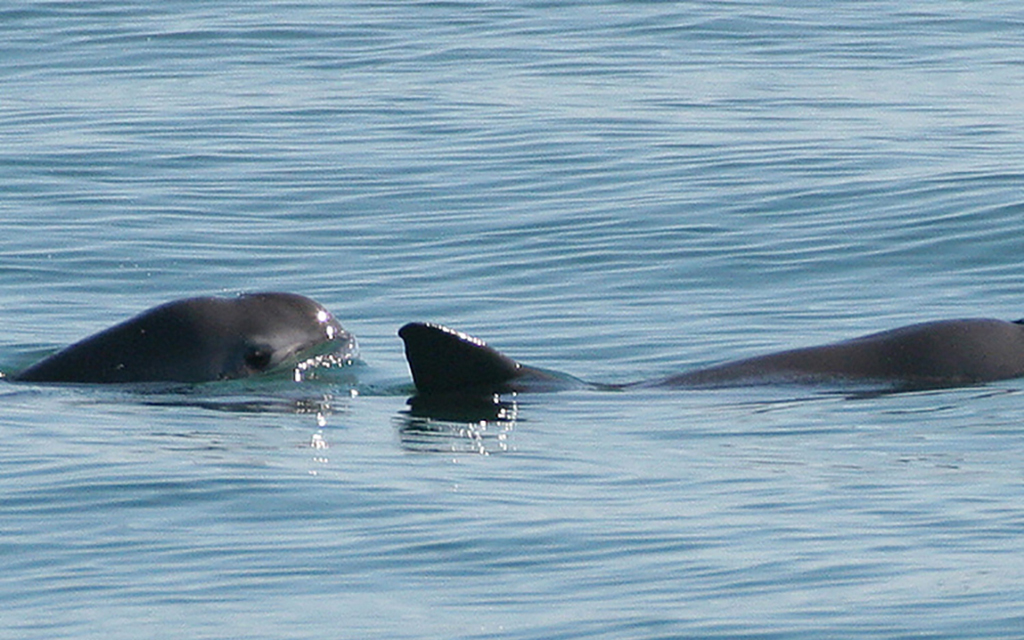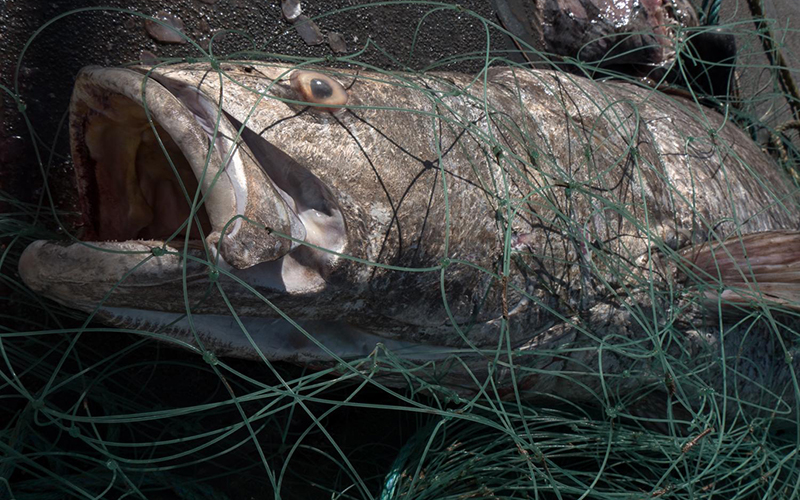
A pair of vaquita sighted during a 2008 survey in Gulf of California. Current estimates say there may only be a dozen or so of the small porpoises left, and the U.S. says Mexico has not done enough to protect the animals. (Photo courtesy NOAA Fisheries)
WASHINGTON – Mexico is not living up to its responsibility to protect the threatened totoaba fish and the critically endangered vaquita, a small porpoise of which there are only around a dozen left in the Gulf of California, the Biden administration said this week.
But the president stopped short of imposing trade measures on Mexico as a result, drawing rebukes from environmental groups that demanded a harsher response.
“The United States needs to apply the strongest pressure and ban seafood from Mexico until there’s real enforcement on illegal fishing in their habitat,” Sarah Uhlemann of the Center for Biological Diversity said in an emailed statement.
But President Joe Biden, in a letter to Congress Monday, said only that trade measures could be imposed a year from now, when a group of Cabinet agencies is to report back on whether Mexico has “reduced the illegal harvest and trafficking of totoaba and enhanced the conservation of vaquita.”
“They must do more to prevent this illegal trade, enforce against illegal totoaba fishing across its full range, and protect these species,” Biden’s letter said, adding that the issue will continue to get “the highest level of attention.”
He also said the U.S. stands ready to help with conservation efforts, “if requested by the Government of Mexico.”
But the center’s statement said enough time has already been wasted by what it called Mexico’s inaction on the conservation of the endangered species.

Poachers prize the endangered totoaba, but the illegal gillnets they use to catch totoaba also ensnare and kill the critically endangered vaquita porpoise. (Photo courtesy of Sea Shepherd)
“For decades, Mexico has failed to adequately enforce its fishing and wildlife trade laws in the Upper Gulf, causing the vaquita to decline from nearly 600 animals in 1997 to only around a dozen today,” the statement said. “Mexico has a long, painful history of failed promises on protecting these little porpoises.”
DJ Schubert, a wildlife biologist with the center, also called for sanctions against Mexico and said in the statement that the U.S. should do “everything in its power to save the vaquita.”
“The U.S. public will not tolerate our government being complicit in the extinction of a species,” Schubert added.
Without these steps, the center says the species will “at best remain on the brink of extinction.”
The White House did not respond to a request for comment before publication.
Along with immediate action against Mexico, advocates are calling for proper enforcement of a ban on gillnets around the vaquita habitat. These are fishing nets that allow a fish’s head through the holes, but trap them when they try to back out.
The nets are used to capture totoaba, another threatened species in the area. It has been illegal to fish for totoaba since 1975, but they are regularly poached to meet demand on the Chinese black market where their swim bladders can fetch tens of thousands of dollars. Demand has soared in recent years for the fish, which is used in Chinese medicine, food and cosmetics.
Vaquita, which are also only found in the Gulf of California, get their heads caught in gillnets intended for totoaba. Unable to surface for air, they drown.
In a statement on its website, Sea Shepherd Conservation Society, which has partnered with the Mexican government in conservation efforts since 2015, said it is “fully committed” to protecting the endangered species.
“The highlight for everyone involved in the Vaquita Refuge this year was the sighting of at least one vaquita calf. This is encouraging,” the statement read. Increasing the scope of its partnership with Mexico was now its “singular focus.”
The Mexican Embassy did not respond to a request for comment. But Mexico has in the past defended its conservation record, pointing to a 90%-plus drop in the number of small fishing boats and gillnets reported by an expert crew that toured the “Zero Tolerance Zone” in the gulf from October to May.
